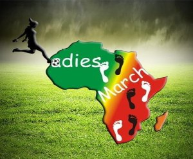Credit: ESPN
Within FIFA, Diego Guacci was the women’s football expert in South America chosen to help select candidates for its world player of the year award.
To teenage players in Argentina, he was the coach who allegedly exposed himself on a video call, sent sexually explicit messages and berated girls as young as 14 in the locker room with sexually threatening abuse after losing a match.
Five players testified to FIFA ethics committee investigators that their club coach, who later became technical director of Argentina’s national teams for under-15 and under-17 girls, violated his duty of care by directing sexual harassment, abusive behavior and anti-gay messages at them.
Now, more than two years after an investigation led by two women began, the alleged victims discovered that a panel of three male FIFA ethics judges declined to find Guacci guilty.
The chief judge, Vassilios Skouris, is a former president of the European Court of Justice in Luxembourg.
The judges concluded “the evidence on file is insufficient to corroborate, to its comfortable satisfaction, the players’ account of the events.”
They did note in a 40-page ruling published Monday by FIFA that their verdict did not mean the “reported facts” did not occur.
FIFPRO, the world players’ union, said it is concerned the case will deter others from speaking out against the perpetrators of harassment and abuse.
“The decision by the FIFA Ethics Committee raises questions about how much evidence is needed for disciplinary action,” said the Netherlands-based union, which represented the players and witnesses who gave testimony.
FIFA said in a statement on Tuesday that the ethics investigators and judges “followed the due process indicated in the FIFA Code of Ethics.”
Guacci was described in the ruling as “a FIFA Technical Expert and mentor since 1 January 2021” — one year after the formal complaint against him. He had been appointed in 2011 by FIFA as an instructor in women’s football.
One year later, the alleged incidents began and continued through 2015, when he was working in different spells with two women’s teams in Argentina, Atletico River Plate and Deportivo UAI Urquiz.
One player, who was granted anonymity by FIFA, told investigators she was talking to Guacci about tactics on a video call when he asked her to take off her shirt and expose herself.
“I was completely shocked. I pretended to not understand and I hoped he would just stop,” she said in testimony published in the ruling. “When I continued to play dumb he repeated the request. Then he moved his camera and showed me that he was not wearing any trousers. He was only wearing boxers.
“I was completely shocked and horrified,” the player said. “I had no idea what to do and felt disgusted, violated and incredibly awkward. I just said, ‘I’m sorry, I am in a relationship. I don’t do those things.’ I also pointed out that he was my coach and I was a player, and I made it clear that I did not want this.”
While asking her not to tell anyone about the incident, Guacci allegedly continued to pursue her with calls and explicit texts, including a request to send naked photos.
FIFA investigators said Guacci “unintentionally confirmed that he had harassed” the player after calling another coach to ask if he knew if she was involved in the investigation.
A different player said Guacci aggressively used the language of sexual threats against his team, including players who were 14 and 15, after losing a game.
“Mr. Guacci constantly and inappropriately used sexual references, including in the presence of players who were still children. His behavior was controlling, sexualized, aggressive and dominating,” the witness described as Player A said.
Witness Player C said of the incident: “It scared me. I was a little girl, and I wondered if we were in danger.”
Player A also testified that Guacci “was very indiscreet and inappropriate about players’ private lives” and once “outed this young player’s sexuality to her mother without her consent.”
A different player described her discomfort when alone with Guacci in a car he was driving. “I was only 15 at the time but he repeatedly and persistently asked me about my sex life,” the witness Player B testified.
She said Guacci used his link to FIFA to empower him, saying “the first word he always said to you was that ‘I represent FIFA, I work for FIFA and for women’s football.”’ Guacci also allegedly told Player C she was fat.
“It was more bullying than a technical appreciation. He made me feel horrible, and he really traumatised me,” she said.
The coach’s alleged fat-shaming and anti-gay comments were corroborated by witness Player D, the FIFA ruling showed.
The FIFA investigators cited four different breaches of football’s Code of Ethics for their conclusion that Guacci was guilty of failing to protect his players’ physical and mental integrity.
Guacci denied all the accusations and provided a list of more than 100 potential witnesses to support him. Two testified that the coach and his wife had been supportive of players at his clubs.
“He always gave an image of values, companionship, professionalism and FAMILY,” said one woman, described as Witness 2.
The original complaint, Guacci said, was made by Player A, who was “annoyed that he could not meet their [sporting] desires, declared their annoyance with negative comments about his work.”

